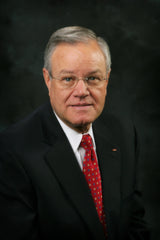Making Character First: Building a Culture of Character in Any Organization
Author :Tom Hill , Walter Jenkins (co-author)
Character First was invited to train businesses in Taipei , Taiwan . In spite of my belief that character is a universal need and not a cultural issue, I worried that the problems in Asia would be so different that Character First would not work there. My friends in Taipei assured me that it would work even with the language barrier, but I still could not shake my concerns.
Out of desperation, I subscribed to the English version of the China Times. I read the newspaper for several months before we left and was amazed that the problems and difficulties it reported were the same as in any newspaper in a major U.S. city. This reassured me that character issues were the same around the world. With my confidence renewed, we scheduled and conducted the first of many Character First seminars in Taiwan .
A Revelation in Taiwan
The first major company in Taiwan to use Character First was Everlight Chemical Industrial Corporation, the country's dye industry leader. Everlight's founder and Chairman of the Board, Ding-Chuan Chen, had been teaching integrity and character inside his company since founding it in 1972.
Mr. Chen learned about the Character First training that was scheduled for September 1997 in Taiwan . He immediately recognized that the training would help reinforce Everlight Chemical's management philosophy: "The pursuit of progress and innovation, the stimulation of individual potential, and contribution to the quality of life."
Mr. Chen attended the training and brought 60 managers from Everlight Chemical. To his team, the three-day seminar was a revelation—and within four months, Everlight Chemical was implementing Character First company-wide. Getting Started at Everlight Chemical
Everlight Chemical began by translating Character First materials into Chinese for its employees to read and discuss. It also began to praise for character in monthly meetings, on employees' birthdays, and daily, when anyone saw good character being exhibited. Some departments created a "character mailbox," and people who witnessed good character were encouraged to jot it down and drop it in the box. The boxes were opened during monthly meetings, and the character reports were shared with all of the employees. After the meetings, some departments also documented key points on cards that employees can wear around their necks.
Everlight Chemical communicated the character qualities it expected in several ways, including publishing a quarterly magazine, using character cards and posters, and posting real-life examples of good character on the company website. The company began holding an annual celebration, with booths for its employees to play character games. Everlight Chemical changed its employee evaluation to include character as 20 percent of every individual's performance review. During job interviews, applicants were now required to answer questions about character.
Thirteen years later, Character First continues to be an integral part of the company. It has become a platform to help its employees reach their full potential, increase their families' sense of worth, and impact their communities.
Beyond Everlight Chemical
Mr. Chen's commitment to character training has grown beyond the implementation at Everlight Chemical—he believes character is essential for his community and Taiwan as a whole. In December 1998, he assumed the role of Chairman of the Board of the Pei Ji Educational Foundation, with the goal of promoting character education throughout Taiwan . With the foundation, Mr. Chen has introduced character training to elementary schools throughout Taiwan and launched a summer camp near the Everlight factory, where many Everlight employees volunteer to help students learn character.
Taiwan was just the beginning of Character First's influence in Asia . We have now conducted seminars in Korea , Singapore , Indonesia , Malaysia , Mongolia , Philippines , Hong Kong, Macau, and China .
About Tom Hill

Tom Hill is the Chairman of the Board of Kimray, Inc., a manufacturer of oilfield equipment and controls. Tom began his career at Kimray in 1971 after seven years in the United States Marine Corps including a tour in Vietnam as a Radar Intercept Officer in F4-B Phantom jets and then earning a B.S.E.E. from Oklahoma State University. Upon graduation from Oklahoma State University he received the St. Pat’ s Award, the highest honorary recognition in the College of Engineering, and the Outstanding Electrical Engineer Award
Source:














No comments:
Post a Comment